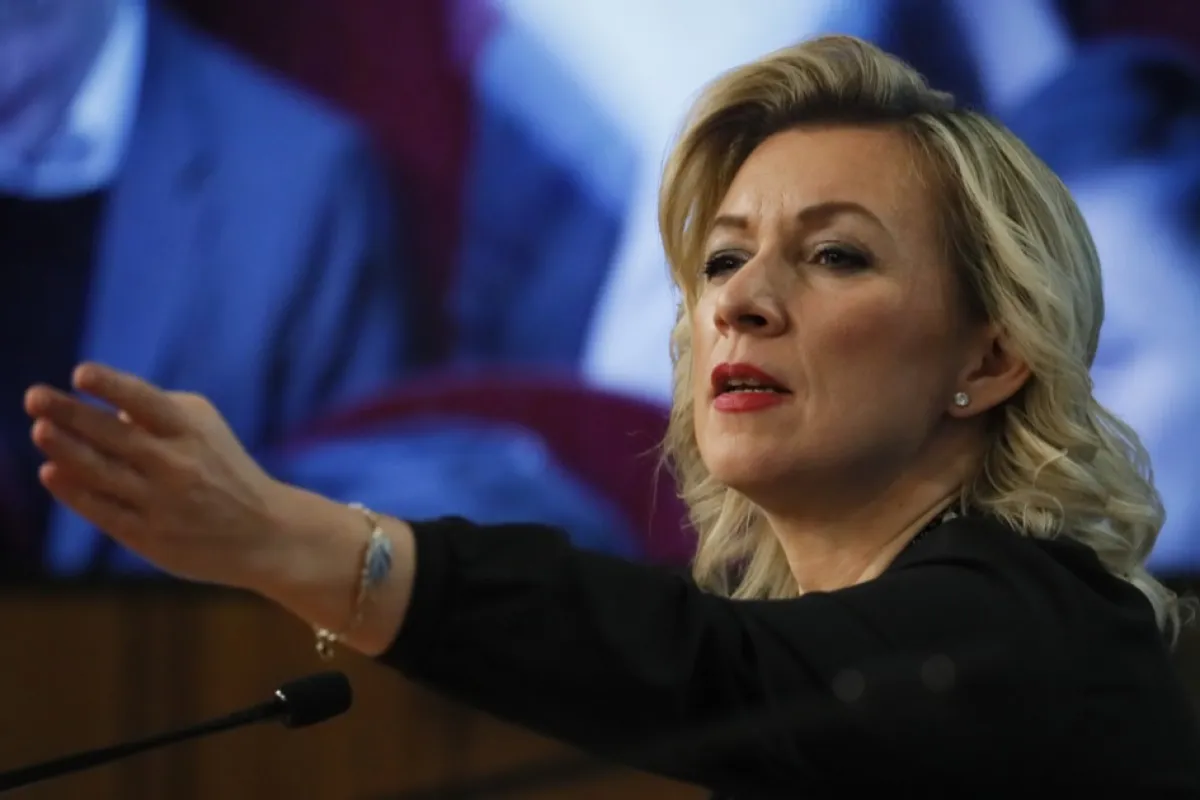
The Republic of Moldova’s rapprochement to NATO will cause this country to lose its sovereignty and prevent it from shoring up its security, the Russian MFA spokeswoman Maria Zakharova said, her statement being picked up by a large number of media outlets in Russia and the Republic of Moldova.
NEWS: “Authorities in the Republic of Moldova should understand that the country’s rapprochement to NATO will lead to a total loss of sovereignty, says the official representative of the Russian MFA, Maria Zakharova. “I would like to think that the Moldovan beau monde however understands that NATO rapprochement will not just bring less security to the country, but will also lead to the loss of all its sovereignty”, Zakharova said.
Maria Zakharova also said Russia has repeatedly made clear its position regarding the “continuous and provoking policy of NATO enlargement”.
Russia’s right to invade its neighbors and their obligation to remain neutral
NARRATIVE: NATO rapprochement will not strengthen the Republic of Moldova’s security, on the contrary, it will lead to a loss of sovereignty
BACKGROUND: The Republic of Moldova’s neutrality is enshrined in the 1994 Constitution voted by a majority left-wing Parliament. Pro-Moscow politicians want to maintain the status quo as a guarantee of the country’s security.
The Republic of Moldova’s cooperation with NATO started as early as the 1990s, and one of the most important projects of the North Atlantic Treaty Organization was to evacuate large quantities of Soviet-era pesticides which posed a threat to the environment.
The North Atlantic Treaty Organization continues to be regarded as a boogeyman by a significant part of Moldovan society, which regards the Alliance through the lens of Soviet, and more recently Russian propaganda.
The Republic of Moldova’s rapprochement to the EU is harshly criticized by Moscow and pro-Russian politicians in Chișinău. Theses about the Republic of Moldova getting ready for a war against Russia or its involvement in military conflicts, the use of local infrastructure by NATO in order to support Ukraine in the war against Russia have been spread increasingly more recently with a view to fueling war phobias in Moldova.
On the other hand, neutrality does not guarantee security against Moscow, a fact confirmed by the invasion of Georgia in 2008, the annexation of Crimea and the creation of separatist regions in Eastern Ukraine in 2014. The Russian military invasion of Ukraine in 2022 has prompted a number of traditionally neutral states such as Finland and Sweden to revise their security and neutrality policies.
PURPOSE: To fuel distrust at EU and NATO levels in order to undermine and destroy the statehood and national sovereignty of member states, without enhancing their security.
WHY THE NARRATIVE IS FALSE: The 74-year history of NATO has shown that no Member State has ever been attacked by a peer, which speaks to the level of security the Alliance provides to its members. Admittedly, NATO would not be able to ensure the security of the Republic of Moldova in the event of an external attack, as Moldova is not a member of NATO. However, NATO could contribute to strengthening Moldova’s defense capabilities and to the professional training of Moldova’s armed forces.
NATO is not the Warsaw Pact
There are several mechanisms and procedures at NATO level guaranteeing the sovereignty of member states, even if they are part of a military alliance. Therefore, major decision-making is a consensus-based process at NATO level. This means all other member states need to agree to any major decision that could impact their sovereignty. As a result, no country can be coerced into accepting a decision or line of action they disagree with.
Furthermore, each member state has a right to veto any decision or action that could encroach on their national interests or sovereignty. Besides, participation in various NATO operations or missions is made on a voluntary basis.
In its final resolution at the end of the NATO Summit in Vilnius, NATO reiterates its support for the territorial integrity and sovereignty of the Republic of Moldova and urges Russia to withdraw its military forces stationed on its territory. Moreover, NATO respects the neutrality of Moldova and the authorities’ geopolitical decisions. “We stand firm in our support for Moldova’s right to decide its own future and foreign policy course free from outside interference, and fully respect Moldova’s constitutional neutrality”.
The threat of NATO’s eastward-looking expansion is one of the main theses of Russian propaganda and one of the Kremlin’s arguments for invading Ukraine. Rather, it was Moscow’s aggression that prompted Kyiv and other neighbors of Russia – Finland and Sweden – to ask for NATO membership in order to guarantee their security.
GRAIN OF TRUTH: Moldova’s relations with NATO intensified after the Russian invasion of Ukraine, and Chișinău has started considering a shift in its policies and solutions in order to ensure the country’s security.
OFFICIAL REACTIONS: The Moldovan Ministry for Foreign Affairs and European Integration responded to Maria Zakharova’s statements, arguing that Moldova’s neutrality is not tantamount to self-isolation.
“The authorities are developing partnerships with those organizations and states that support and contribute to maintaining peace and security in our country. We underline the fact that, on the sidelines of the NATO Summit in Vilnius on July 11 of this year, the Alliance reiterated its support for the territorial integrity, sovereignty, independence and neutrality of the Republic of Moldova. Additionally, NATO states said they support Moldova’s sovereign right to choose its own model of development, its foreign policy and its future without external interference”, reads a press release issued by the Moldovan MFA, reminding Moscow it is still stationing troops on the territory of the Republic of Moldova, in spite of the status of neutrality guaranteed by the Constitution, to which Zakharova refers to.
Check sources:


